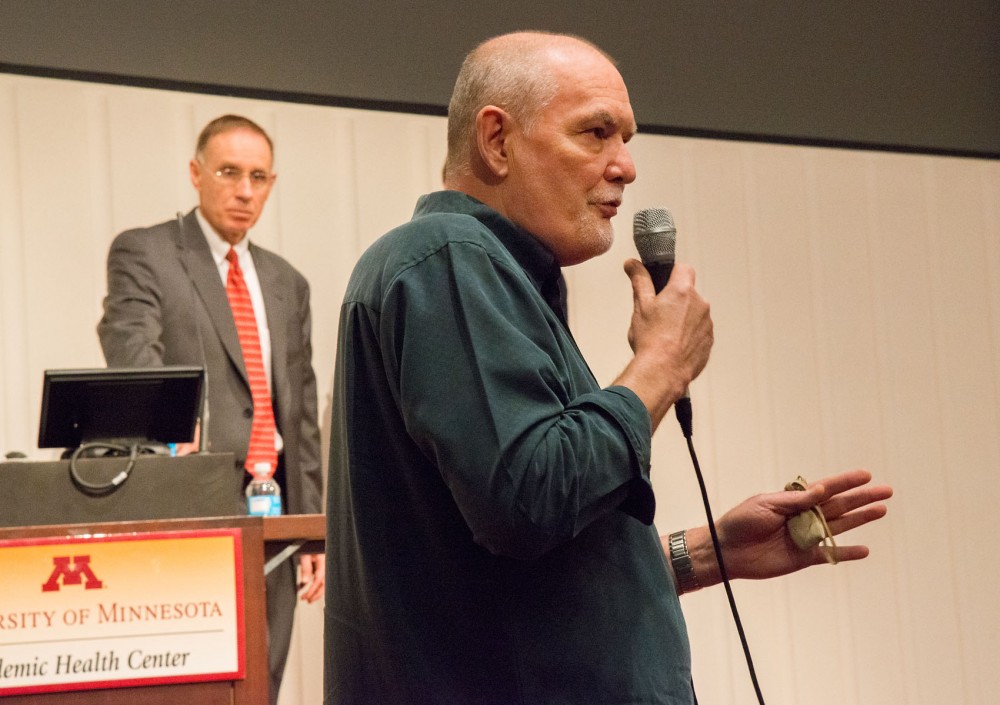About 100 faculty members, students and local residents gathered Monday to share their concerns about the University of Minnesota’s human subject protection program.
In the wake of two external reports earlier this year that heavily scrutinized the University’s human subject research programs, Vice President for Health Sciences and Medical School Dean Brooks Jackson and the Academic Health Center hosted a town hall public forum at the Mayo Building to discuss the program.
Several audience members feverishly demanded accountability from Brooks and other University leaders.
Decade-long criticism of how the University handled the death of Dan Markingson, who killed himself in 2004 while enrolled in a University antipsychotic drug trial, sparked recent investigation into the program.
A March report released by the Office of the Legislative Auditor criticized the University’s response to his death. Following this report and a University-hired external review managed by the Association for the Accreditation of Human Research Protection Programs — which found ethical flaws in the program — the University
halted enrollment in psychiatric drug trials until an independent review board lifts the suspension.
Department of Psychiatry head Charles Schulz also stepped down from his position last month amid the controversy. Schulz was head of the department at the time of Markingson’s death.
Jackson opened Monday’s meeting by addressing the criticism directed toward University leaders and discussing the steps they are taking to reform the program.
“I don’t think there was a cover-up,” he said at the forum. “But what we failed to do was listen to the critics.”
Jackson told the forum that an implementation team — which includes himself, Vice President for Research Brian Herman, professors and health professionals — charged with making recommendations for the program will deliver a proposal to University leaders by May 15.
Some of the recommendations will include timelier program reviews, ramped-up ethics training and the establishment of a culture of trust surrounding human subject protection, he said.
Jackson, along with Herman, opened the floor for comments and questions. Some of those in attendance expressed passionate opinions, including some harsh criticism for the leaders and disappointment in how criticism has been handled.
Associate bioethics professor and longtime critic Leigh Turner questioned why the leaders under fire are part of the implementation team making
recommendations to reform the program.
He said those leaders need to accept blame and allow an outside body to take charge of making recommendations. Herman urged Turner to read the implementation team’s proposal before questioning its decisions.
Mike Howard, a friend of Markingson’s mother, Mary Weiss, told the forum he wants to hold Jackson and the other leaders accountable for the University’s response to Markingson’s death and the concerns outlined in the reports.
Howard said he and Weiss both hope that from now on the University leaders change their practices, both in the research itself and in responding to controversial situations like Markingson’s.
“There’s no more litigation,” Howard told the leaders. “Just get the truth out.”


